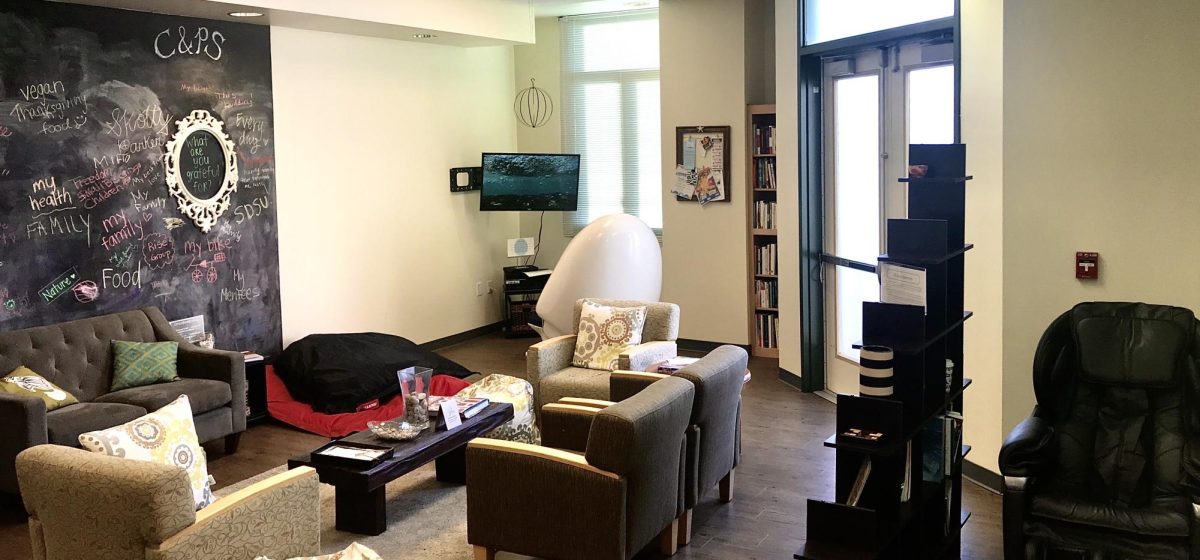Michael Juan, the interim associate director of San Diego State University Counseling and Psychological Services, recently visited an SDSU journalism class to speak about “Talk It Out,” a service that offers students informal and confidential consultations with therapists on a drop-in basis.
Juan said he recommends Talk It Out to students who might be unsure about fully committing to therapy, but are interested in experiencing what therapy is like and having a conversation without any obligation.
“Our counseling center thinks outside the box in terms of being able to engage students and to help them connect to services in a different way,” Juan said.
While Talk It Out therapists are licensed professionals, the program is not a replacement for therapy and is not considered mental-health treatment, according to the SDSU website.
Additionally, the SDSU website said the purpose of Talk It Out is to speak with a therapist for roughly 20 minutes about occasional needs that might come up during the semester.
According to the SDSU Counseling and Psychological Services Instagram, these needs may involve discussing an interpersonal issue about a friend or family member, as well as seeking an outside perspective on a stressful experience.
Juan said Talk It Out provides students with therapists who are specialized in addressing the specific challenges faced by students during the academic year.
According to Juan, Talk It Out was developed due to the realization that there are large communities on campus not accessing the care provided by SDSU Counseling and Psychological Services, which led to the embedding of therapists in centers where access to care was most needed.
Juan said SDSU Counseling and Psychological Services designated Talk It Out hours for various centers on campus, including the Center for Intercultural Relations and the International Student Center.
“One of the most profound developments has been the evolution of increasing access to services and the commitment of funding to make that happen,” Juan said. “Access to care has never been better.”
According to internal health records from SDSU Counseling and Psychological Services, from the 2018-19 to the 2023-24 academic year, there has been a 21.7% increase in students accessing care, which equates to a 34.1% increase in the number of contacts with SDSU students.
However, Juan said that despite the success of anti-stigma campaigns over the past two decades, there will always be a stigma associated with going to therapy, particularly in certain communities across campus.
“There will always be communities who, for whatever reason, are not accessing us,” Juan said. “One of the things that is ongoing is for us to reach those students.”
Additionally, Juan said he tries to let these specific communities know SDSU Counseling and Psychological Services takes confidentiality very seriously.
According to Juan, confidentiality is taken so seriously that SDSU Counseling and Psychological Services has an entire separate database for its records, distinct from the university itself.
“What we know is that working with students has a unique tilt to it,” Juan said. “If you’re looking for a therapist or counseling center that can meet the needs of a student, that’s typically us.”
For more information about Talk It Out, visit the SDSU website or the SDSU Counseling and Psychological Services Instagram, @sdsucounseling.






